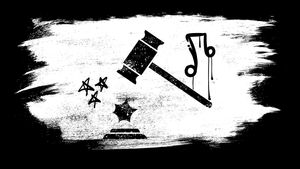A termination rights case involving 2 Live Crew has reached a court in Miami where jurors will now decide whether members of the hip hop group were ‘artists for hire’ when they recorded their first five albums in the 1980s and 1990s with Luke Records, the label owned by group member Luther Campbell.
Whether or not recordings released under old record deals are ‘works for hire’ dictates if the artists who recorded those tracks can reclaim the copyrights in them after 35 years under the US termination right. The hip hop group are keen to exercise that right, but American copyright law is very explicit that the termination right applies to “any work other than a work made for hire”.
Members of 2 Live Crew “each expressly agreed” in a 1991 agreement “that the 2 Live Crew copyrights were works made for hire”, says a pre-trial filing by Lil Joe Records, which acquired the rights in the group’s recordings in 1996. “Their acknowledgment is accurate”, it adds, because they were employees of Luke Records and “the 2 Live Crew copyrights were prepared within the scope of their employment”.
According to Law360, during the first day of the trial yesterday, Joseph Weinberger - owner of Lil Joe Records - told jurors that the members of 2 Live Crew definitely had an employee relationship with Luke Records in the early 1990s. He knows this, he said, because he was general counsel and CFO of the label at the time and, in that role, he managed payroll and the filing of payroll taxes.
Under US law, creators who assign or transfer copyrights to business partners - such as music publishers and record labels - can terminate those assignments after 35 years. In music publishing, the termination of old publishing deals is pretty common, but in the record industry there have been various disputes over whether termination is possible on the basis record deals are often arguably work for hire agreements.
Campbell’s Luke Records released the 2 Live Crew’s early albums, but both he and the label went bankrupt in 1996. Weinberger’s Lil Joe Records then bought the rights in the recordings via the bankruptcy. Three members of the group, including Campbell, began the process of exercising the termination right and reclaiming the rights in their recordings in 2020. Lil Joe Records then began legal action in a bid to stop that process.
Given the work for hire argument has been central to various termination right disputes in the record industry, it is interesting to see this one get to court. Though there are some extra complexities unique to this case.
First, the fact the group’s members were actually on the payroll of Luke Records arguably makes the work for hire argument stronger. Second, in the case of Campbell, the fact he owned the label he was signed to could also be relevant. And third, Lil Joe has previously argued that Campbell’s bankruptcy in 1996 also impacts on his termination right.
On top of all that, there is an important dispute over whether or not the group’s relationship with the label should be dictated by the 1991 agreement - which does include work for hire language - or a 1990 agreement which does not.
The group members insist the 1990 agreement is what matters. Their pre-trial filing says, “the 1990 agreement is signed by all members of 2 Live Crew and by Campbell on behalf of his record label. The parties at all times performed under the 1990 agreement, with Campbell’s label releasing the subject albums and paying royalties to 2 Live Crew’s members".
The 1990 agreement, they argue, put in writing what had been agreed orally years earlier. Not only that, but “Lil Joe has had the 1990 agreement in its records since the 1990s and never challenged or even questioned it until this litigation arose”.
The 1991 agreement doesn’t supersede the 1990 agreement, the group members argue, because the later agreement “makes clear that it only addresses albums to be created after its signing”. And at the time that 1991 agreement was signed all the albums that are part of this dispute “had already been created and released under the terms of the 1990 agreement”.
The lawyer representing the group’s members, Angela Nieves, was confident in court yesterday that the evidence will show that her clients were never artists for hire when recording as 2 Live Crew. As a result, she added, “We are going to show that Lil Joe has no right to obstruct their rights to termination”.

